
Improvement in access to mental health resources for children would decrease vicarious trauma of foster parents and social workers via improved living and working conditions.

Improvement in access to mental health resources for children would decrease vicarious trauma of foster parents and social workers via improved living and working conditions.

In a time when vaccine hesitancy is contributing to a rise in measles cases, an understanding of why parents are hesitant is key to help change their narrative.

Investigators aimed to assess effectiveness of early and continuous enrichment intervention on motor, cognitive, and functional skills in infants with CP.
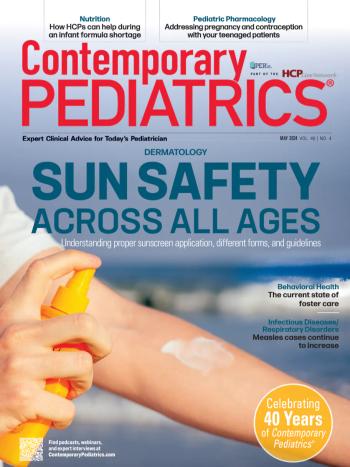
Editor-in-chief Tina Tan, MD, FAAP, FIDSA, FPIDS, highlights the April 2024 issue of Contemporary Pediatrics.

Carissa M. Baker-Smith, MD, MPH, explains how a multidisciplinary team works together to diagnose and treat hypertension, as well as obesity in children.

Investigators sought to evaluate characteristics of adolescents with a history of depression who do not endorse risk via the PHQ item 9, which is commonly used to screen for self-harm and suicide risk.

According to new study data presented at the 2024 Pediatric Academic Societies Meeting, dupilumab (dupixent; Sanofi and Regeneron) demonstrated positive safety and efficacy results for up to 1 year in infants and preschool-age children with atopic dermatitis.
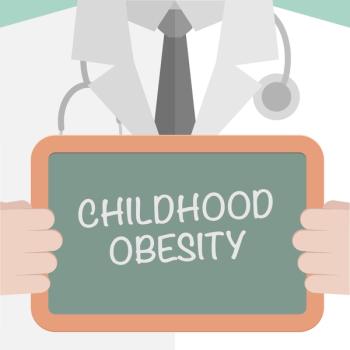
Across all age groups, obesity rates increased during the pandemic and decreased in the post-pandemic period (P < 0.01).
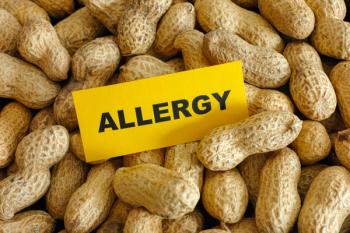
A poster session evaluated early evidence from the randomized controlled iREACH trial.

A recap of the American College of Cardiology meeting and discussion of obesity and hypertension in the pediatric population.
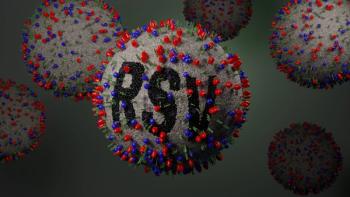
The new data, published in The Lancet, showed that nirsevimab substantially reduced RSV hospitalizations.

A recent nationally representative survey revealed what types of meals parents believe are healthy for their children, and how much food is the healthy amount.

ICD-10 accuracy varied by age of the patient, influenza season definition, time between onset and testing, and clinical setting.

A higher TRV was significantly associated with cerebrovascular disease and persistent albuminuria in children with SCD across two large cohorts.

The resubmission was announced in a first quarter, 2024 earnings news release from Lilly, which expects "regulatory action in the second half of 2024."
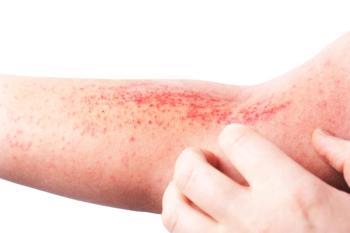
Data from a recent study revealed that stigma associated with chronic skin diseases made an impact on the quality of life of affected children and adolescents.

A discussion based on an FDA-cleared objective ADHD diagnostic test developed by Qbtech.

The rare genetic disease causes the body's immune system to not function properly.

A decision from the federal agency is expected in the fourth quarter of 2024.

With the approval comes the immediate availability of 5 mg, 7.5 mg, 10 mg, 12.5 mg, and 15 mg doses for patients between 2 to 5 years of age.

Get caught up with our journal! Review some of the top stories from the Contemporary Pediatrics website over the last week, and catch up on anything you may have missed.

New cohort analyses observe a statistically raised risk of myocarditis, pericarditis and seizures among certain age groups, though the data do not go against FDA recommendations.

Though concern exists about the associations of marijuana legalization and youth use, no links were found in a recent study.

Research in AJOG: Maternal hyperoxygenation doesn't boost neonatal Apgar scores in pathologic fetal heart rate tracing, showing no FiO2 benefit.

Study in JAMA: Antenatal corticosteroids don't impact neurodevelopment in late preterm children aged 6 years and up.

Perry Roy, MD, explains how an FDA-cleared objective test can assist in an ADHD diagnosis.

Donna Hallas, PhD, PPCNP-BC, CPNP, PMHS, FAANP, FAAN, highlights the April 2024 issue of Contemporary Pediatrics.

This decision from the federal agency marks the first FDA approval of a systemic therapy to treat patients with pediatric LGG with BRAF rearrangements, including fusions.

The FDA has approved lutetium Lu 177 dotatate for pediatric patients with somatostatin receptor-positive gastroenteropancreatic neuroendocrine tumors.

The biosimilar to ustekinumab is approved for patients 6 years and up, and is expected to be marketed on or after February 21, 2025.